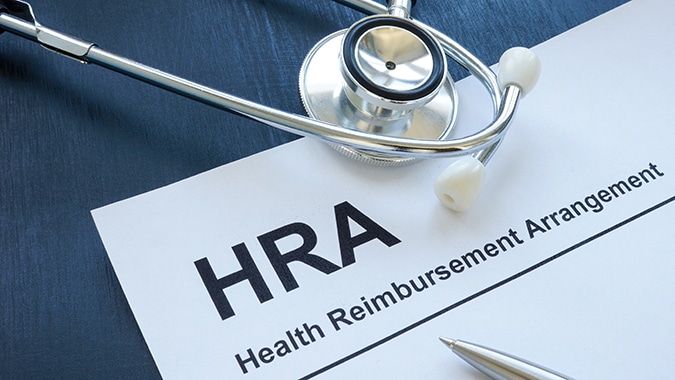Less than 12% of New Jersey employers offer or plan to offer two relatively new forms of health reimbursement arrangements (HRAs) that allow small businesses to offset insurance premiums for low-wage workers in the individual market, according to a study by Rutgers Center for State Health Policy.
The share of small and low-wage firms offering employer-sponsored health insurance has declined for over a decade, and their workers are over-represented among the uninsured, wrote the study’s lead author, Joel C. Cantor, director of the Rutgers Center for State Health Policy. Researchers sought to determine how much employers know about new HRA options and why they do not offer them.
To gather the data for this study, published Nov. 14 in “Inquiry: The Journal of Health Care Organization, Provision and Financing,” NJBIA and the Employer Association of New Jersey (EANJ) asked business owners to complete an anonymous online survey about their utilization of two HRA options designed to reduce the number of low-wage workers without insurance.
Authorized in 2016 under the 21st Century Cures Act, Qualified Small-Employer HRAs (QSEHRAs) allow non-taxed contributions to individual premiums, including in Affordable Care Act marketplaces. In June 2019, Individual Coverage HRAs (ICHRAs) were established in regulations permitting employers to contribute to individual premiums, again including in ACA marketplaces.
QSEHRAs have more restrictions than ICHRAs in that they generally must be offered to all employees, contributions are capped, and they are limited to small firms with less than 50 workers. ICHRAs contributions are not capped and may be offered to specific employee classes such as part-time and retired workers. QSEHRAs may be combined with ACA premium tax credits, ICHRAs may not.
The survey found only 18.5% of respondents were very or somewhat familiar with either of the new HRA options. Even among the 11.8% of respondents already offering or likely to offer them within the next two years, less than half (47.6%) reported being familiar with them. Aside from unfamiliarity, other reasons cited for not offering the newer HRAs include broker advice and complexity.
“Unless these dynamics change, new strategies may be needed to fill the coverage gap for low-wage and small business employees,” the study said.
The survey was conducted by the Rutgers University Center for State Health Policy in collaboration with NJBIA and the Employer Association of New Jersey. This project was funded by the Robert Wood Johnson Foundation.




